Democracy & Rule of Law
Strengthen democratic institutions and promote rule of law principles across the European Union.
⚖️ Democracy & Rule of Law - Democracy is fragile. Learn how to protect it.
A European week of learning, debate, and civic courage.
🎯 What is the programme about?
Democracy & Rule of Law – Youth Academy is not a class, a lecture, or a mock UN — it’s a space where young people come together to confront urgent civic questions. What does the rule of law actually mean in everyday life? What happens when it breaks down? How can the EU defend democratic values when they’re under attack — and what role do citizens, especially young ones, play in all this?
Over five days, participants dive into the mechanisms and challenges of democracy through real-world case studies, interactive simulations, and direct dialogue with experts. You’ll explore how corruption operates, how EU institutions respond to crises, and how whistleblowers and civic actors stand up for accountability — often at a personal cost.
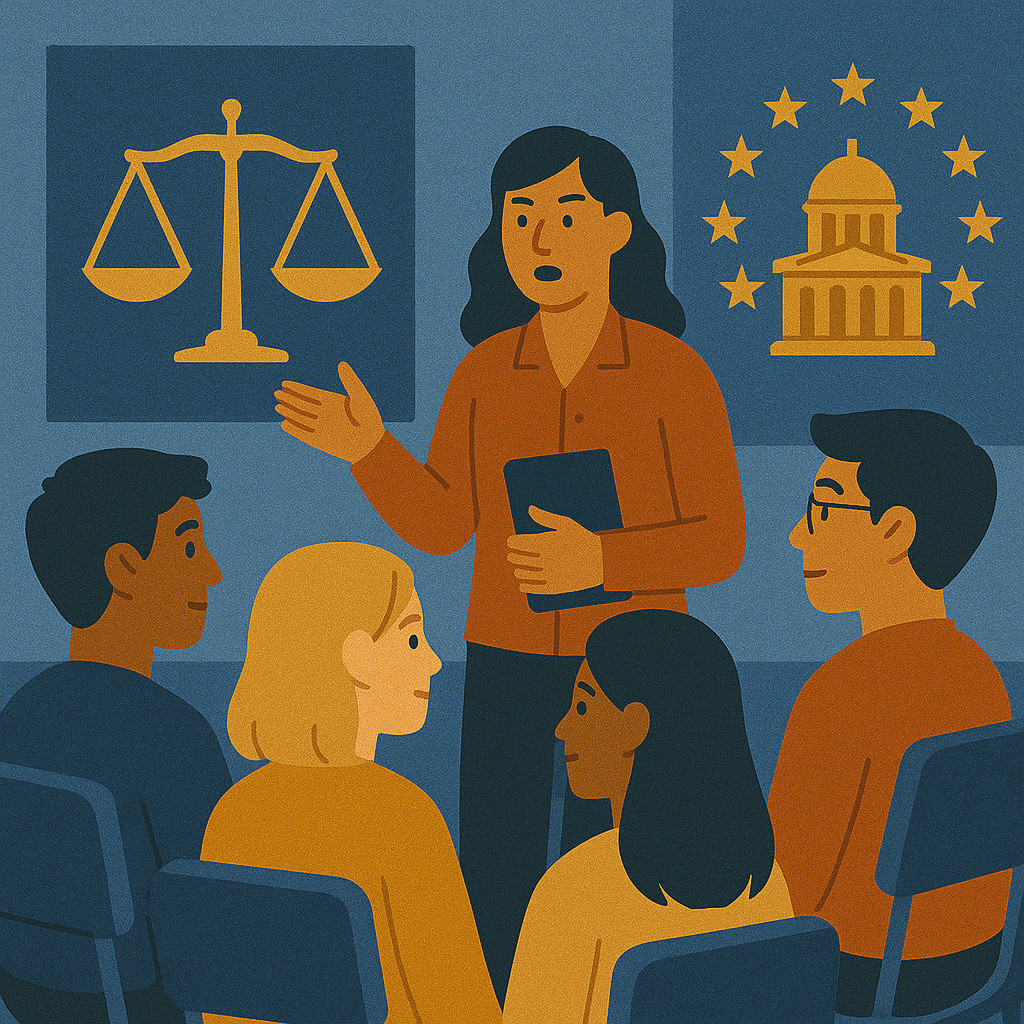
This programme isn’t about memorising facts — it’s about developing the tools and confidence to think critically, act responsibly, and speak up when it matters.
Set in one of Belgium’s most vibrant academic cities — Leuven, Ghent, or Antwerp — the Academy immerses you in a European civic culture, where the past meets the future and where democratic resilience is more than just a slogan. You’ll walk the same streets where human rights were defended, where institutions were built, and where young people like you are still shaping public life.
This programme is part of EUnited’s commitment to youth-led democratic education: building a new generation that not only understands democratic systems, but can challenge, protect, and improve them.
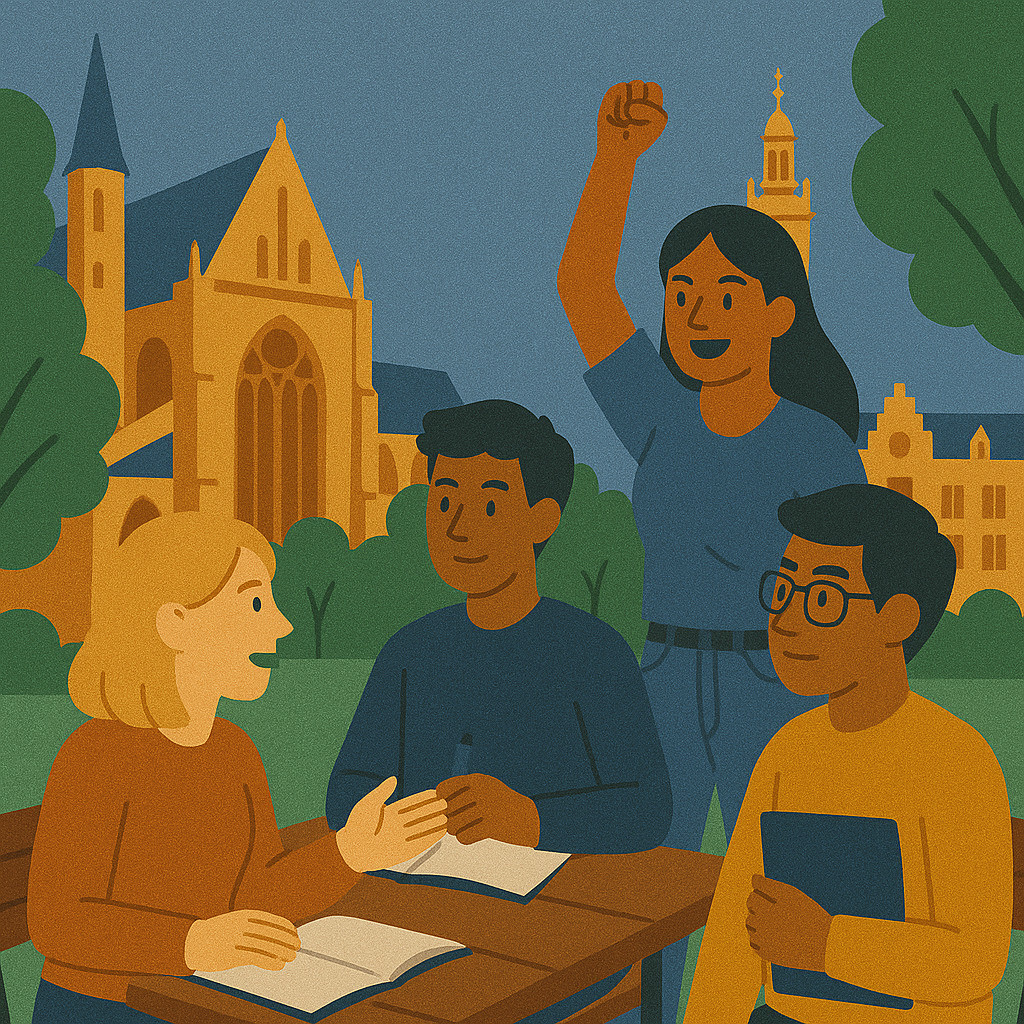
👥 Who is it for?
- High school students (ages 15–18)
- University students (Bachelor’s or early Master’s level) from any EU country
- Interested in: justice, democracy, civic rights, journalism, public policy, or European affairs. No legal background needed — just curiosity and commitment
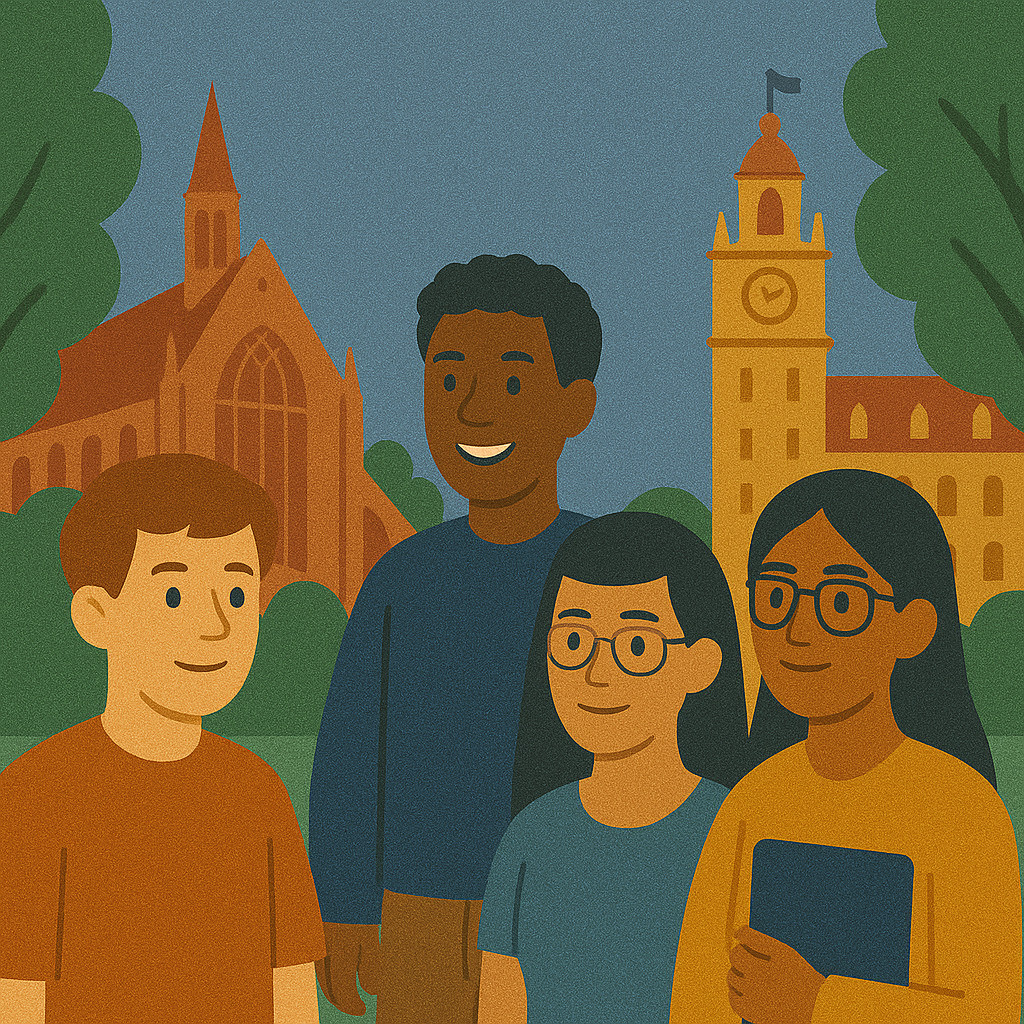
📘 What will your week look like?
Each day is designed to deepen your knowledge, sharpen your thinking, and connect ideas with real-world contexts. Here’s what a week with us might look like:
Day 1 – What is the rule of law and why does it matter?
The first day is about grounding ourselves — not just in legal definitions, but in the lived experience of justice, fairness, and accountability. You arrive in a new place — maybe a little nervous, maybe a little excited. Some of you already have strong opinions, others are still trying to figure out what “rule of law” even means. But something brings you together: the sense that democracy isn’t guaranteed — and that understanding how it works is part of protecting it.
We begin by unpacking the concept of the rule of law. What makes a law legitimate? Who decides what’s fair? What happens when those in power stop playing by the rules? Through open conversations, interactive sessions, and short team exercises, you explore the fragile balance between authority and accountability — and how easily that balance can be lost.
There’s no lecturing, no memorizing — just case studies, provocations, questions that push you to think. In a guided simulation, you step into a society where democratic rules start to disappear. You feel the pressure, the moral dilemmas, the confusion — and you begin to see why laws alone aren’t enough without values, institutions, and courage.
In the afternoon, we visit a cultural or educational space that tells the story of Europe’s struggles with authoritarianism and democracy — a museum, a memorial, a political archive. You see how our present is shaped by past battles over power, silence, and resistance.
By the end of the day, you’re no longer asking “What is the rule of law?” — you’re asking “Where do I stand when it’s under threat?” That’s where the journey begins.
Day 2 – Can the EU defend democracy?
The second day takes you deeper into the political machinery — not of a single state, but of a Union built to uphold shared values across borders. You begin to understand how the European Union steps in when democratic principles are at risk — and why doing so is never as simple as it sounds.
You explore the tools available to the EU: Article 7 of the Treaty on European Union, rule of law reports, conditionality mechanisms, infringement procedures. What do these legal terms mean in practice? What happens when a member state challenges the very rules it agreed to follow?
In focused sessions and group discussions, you examine real constitutional crises from recent years. You begin to see how democratic backsliding doesn’t always happen with a bang — sometimes, it’s a slow erosion, masked by legal language or national pride.
In the afternoon, you meet a guest speaker — maybe a legal scholar, a civil society watchdog, or someone who’s worked inside an EU institution trying to defend democratic standards. They share what it means to hold governments accountable when politics, public opinion, and international diplomacy collide.
You ask difficult questions: Why isn’t the EU faster? Who has the power to act? Is naming and shaming enough?
By the end of the day, you see EU law not as a distant abstraction, but as a set of real instruments — fragile, complex, but essential — to protect the values that brought the Union into being.
And you begin to wonder: if laws alone can’t protect democracy, what else is needed?
Day 3 – Corruption: behind the headlines
By now, your lens is sharper. You’ve looked at democratic ideals and European mechanisms — but today is about the shadows. Not the theory of good governance, but what happens when power is abused, systems are manipulated, and silence becomes policy.
The day begins with a deceptively simple question: What does corruption look like — not on paper, but in real life? You start with everyday situations. A contract awarded quietly. A regulation bypassed. A favour returned. And then you follow the threads.
In a hands-on workshop, you dissect a real case study — one that begins with a small administrative decision and unravels into a web of influence, pressure, and personal gain. Through group analysis and roleplay, you learn how systems protect themselves from scrutiny — and what happens when they don’t.
You’re not just reading — you’re investigating. And you’re discovering that corruption isn’t always illegal. Sometimes, it’s just accepted. Expected. Normalized. And that’s what makes it so dangerous.
In the afternoon, you meet with an NGO, a transparency watchdog, or an investigative journalist. They don’t just talk about corruption — they fight it. You hear what it’s like to ask difficult questions when institutions stop listening. You learn about the risks, the resilience, the small victories that matter.
By the end of the day, you’re not thinking about corruption as a distant issue in “other countries.” You see it as a pattern that can appear anywhere — unless someone speaks up, asks for proof, connects the dots.
And maybe, tomorrow, that someone is you.
Day 4 – Citizens in action
You’ve explored systems, laws, crises, and corruption. But today, the spotlight turns to something else entirely: you. Your voice. Your responsibility. Your power — even if you’re not yet old enough to vote.
The day begins with a challenge: What would you do if you discovered something was wrong — truly wrong — in your school, your city, your country? Would you stay silent? Or would you speak up?
In the morning, you step into a whistleblowing simulation. You play the role of a young employee, a journalist, a citizen who sees something questionable and faces a choice. You experience the fear, the uncertainty, the moral weight — but also the courage it takes to act.
Then, together in teams, you shift gears: from reacting to creating. You design your own civic initiative — a campaign, a podcast, an awareness event, a classroom project. Something concrete, something real. Something you could take home and actually do.
Throughout the day, mentors move between teams, helping you refine your ideas, clarify your message, make it resonate. You’re not just creating a project — you’re shaping a voice, building a message, and learning how to speak not louder, but better.
In the afternoon, you meet someone who’s lived it: a young activist, a transparency advocate, maybe a former whistleblower. They tell you their story — not the polished version, but the raw, real one. And they remind you that citizenship isn’t about perfection. It’s about showing up, staying informed, and doing the difficult thing when it matters.
By the end of the day, something shifts. You no longer feel like a student studying democracy — you feel like a participant in it.
And tomorrow, you’ll show what that means.
Day 5 – Defenders of democracy
The final day arrives with a different kind of energy. It’s not just about wrapping up — it’s about stepping forward. You’ve listened, questioned, debated, created. Now it’s time to present what you’ve built — and who you’ve become.
In the morning, you and your team take the floor. You share your civic campaign, your project, your message. Some teams propose awareness initiatives for schools, others imagine student watchdogs or social media storytelling. Every idea reflects something real: your own way of defending what matters.
But this is not a competition. There are no winners or losers — only voices being heard, feedback exchanged, and confidence taking root.
As the day unfolds, you take part in a reflection session. You look back — at the questions you had when you arrived, at the moments that challenged you, at the values that now feel personal. You write, share, pause. What have you learned about power? About silence? About yourself?
In the afternoon, the group gathers for a closing ceremony. There are certificates, yes — but more than that, there is recognition. Recognition that the rule of law is not just the responsibility of lawyers or politicians. It belongs to all of us — and that includes you.
You leave with a portfolio in your hand, new friendships in your pocket, and a place in the Youth for Rule of Law network — where this journey doesn’t end, but continues in new forms.
Because defending democracy doesn’t start with grand speeches. It starts with understanding, empathy, and the decision to act — one voice, one question, one project at a time.
And now, you’re ready.
🧩 Learning approach
- Simulations and real-world case studies
- Interactive lectures and guided visits
- Peer learning and intercultural dialogue
- Group challenges and public speaking
- Expert exchanges in an informal setting

🗣️ Guest speakers (subject to availability)
Participants will meet inspiring professionals such as:
- EU and constitutional law experts
- Justice researchers and civil society leaders
- Investigative journalists and anti-corruption watchdogs
- Young democratic activists and legal scholars
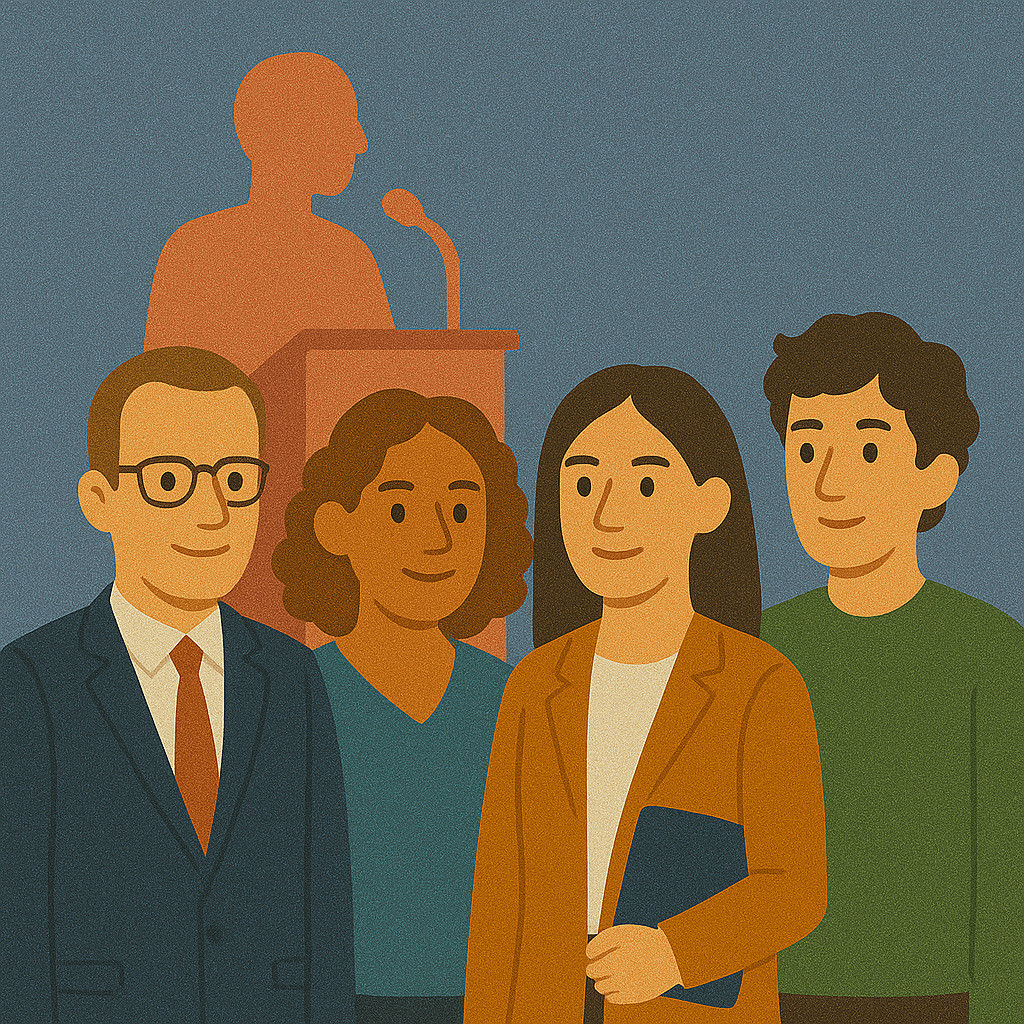
📚 Learning materials
- Youth-friendly guide to the rule of law and EU democratic values
- Excerpts from the EU Charter of Fundamental Rights
- Case studies based on real-life EU legal reports
- Media resources, testimonies, and debate kits
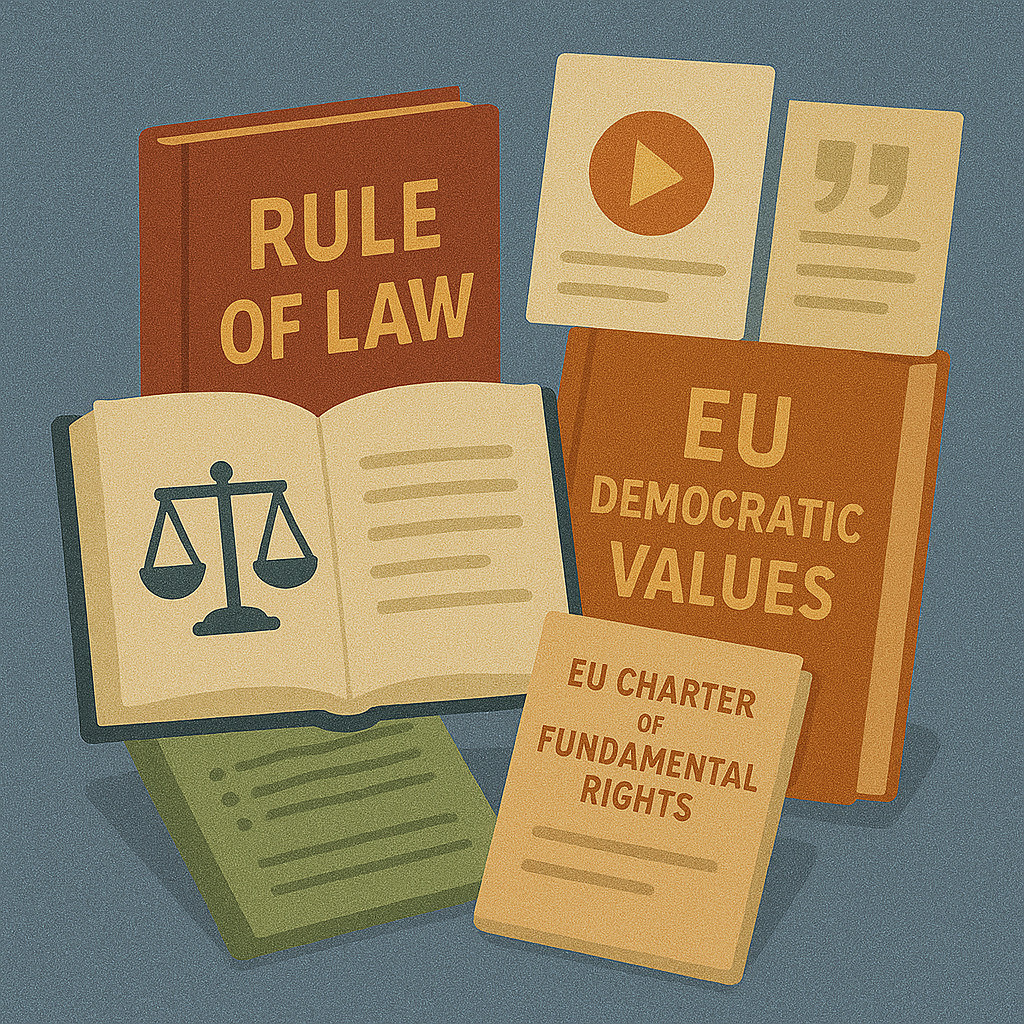
🎓 What will students gain?
- Certificate of participation
- Civic project portfolio (essays, reflections, campaign ideas)
- Potential to replicate their project locally, in school or community
- Entry into the Eunited.Brussels network for future collaboration
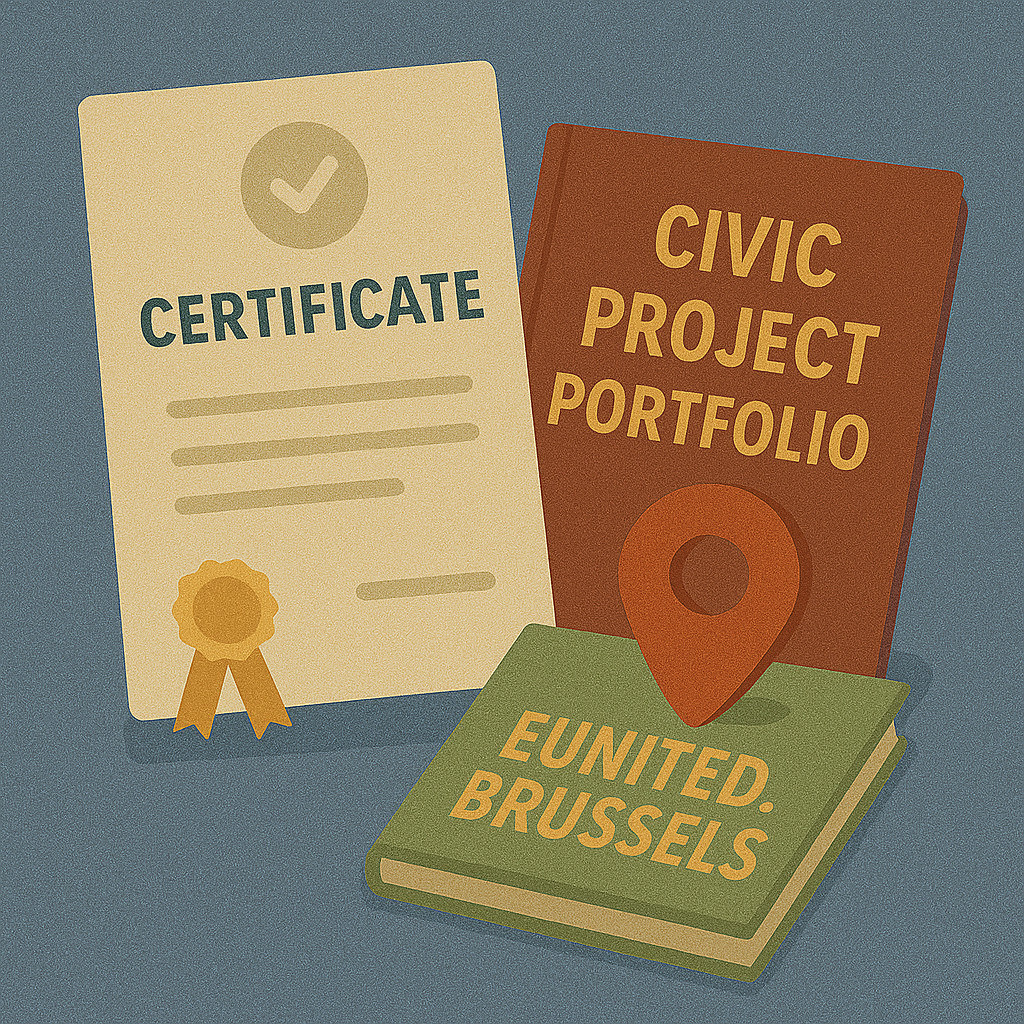
🔧 Practical details
- Hosted in Leuven, Ghent or Antwerp (Belgium)
- Programme delivered in English (Romanian support available)
- Students attend in groups and are accompanied by teacher-coordinators
- Educational, safe, and fully supervised structure
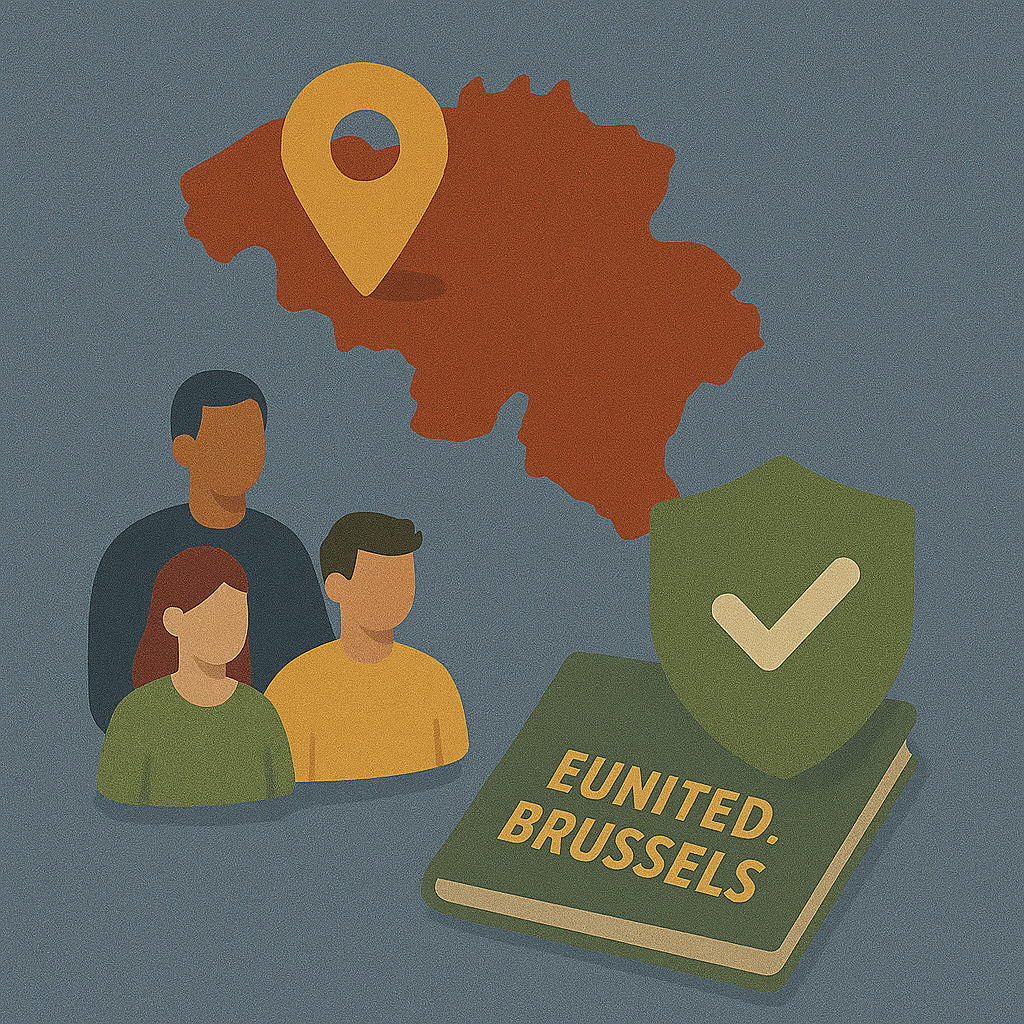
📩 Want to take part?
Whether you are a student, teacher, or school leader interested in joining or partnering with us, reach out.
We’d love to hear from you.
Are you ready to go from learning about democracy to defending it?
Learn. Debate. Resist. Repeat.